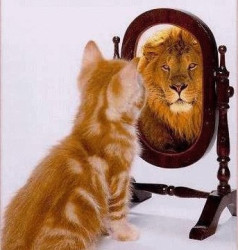After raising 6 teenagers and being a youth pastor for over a decade, one learns a great deal about young people. One of the first things you may notice from this age group is the vast difference in appearance. Some 13 year old’s have mustaches, and some still have milk on their upper lip from the glass they just drank. At this age, they are no longer children, but they are not adults either. They want to be grown up, and think they already are. However just because some may act or look adult-like, do not expect adult behavior.
Help! my child’s in junior high… What should I expect?
Changes in Body:
 First off, the junior high age is a marked as a time of giant growth spurts – physically, sexually and emotionally. They can grow several inches very quickly; their voices change, muscles form and their bodies develop. Most will start to complain about physical ailments like hurting joints, sore stomachs, and weird pains that move around their bodies. This is why this age is so frequently awkward, un-poised and clumsy. It’s hard to navigate life when your body is morphing and changing.
First off, the junior high age is a marked as a time of giant growth spurts – physically, sexually and emotionally. They can grow several inches very quickly; their voices change, muscles form and their bodies develop. Most will start to complain about physical ailments like hurting joints, sore stomachs, and weird pains that move around their bodies. This is why this age is so frequently awkward, un-poised and clumsy. It’s hard to navigate life when your body is morphing and changing.
Most will likely have accidents at this age, and have a tendency to over react and break things. So don’t you do the same, because broken things can be fixed or replaced, your children can’t.
Changes in Relationships:
Because they are growing physically and sexually, they are becoming more aware of themselves. This causes them to be afraid of being different. Their peer group becomes very important to them. This is often reflected in dress, attitudes, language, interests, and hobbies. Because they are beginning to think abstractly, they are able to see and interpret relationships, especially with those of the opposite sex.
At this time, they need to understand the changes happening in them, and how these changes relate to them as a person. They will most likely be more committed to their friends than their family. This will cause them to not want to do things with their parents. To help with this, I found that I had to plan something enjoyable for both them and their friends. If you allow your children to be children around their friends, they won’t be afraid to let you tag along. Which is, of course, how they view it when they do things with you. Just learn to be patient and don’t judge them or their friend’s too harshly.
Changes in Perceptions:
 They want to be independent of adults, yet they still rely heavily on adult guidance and support. We need to set limits for them, because this gives them a sense of security. Yet all the
They want to be independent of adults, yet they still rely heavily on adult guidance and support. We need to set limits for them, because this gives them a sense of security. Yet all the
while we must allow them to function freely within those limits. Because they tend to make snap judgments without weighing the facts, we need to be ready for a change of mind when they find out the consequences of a decision.
On Tuesday they will be excited about an overnight camp out, and then on Wednesday decide they are not interested because they have to get up early! Remember they are on a roller coaster, not you. You need to stay focused and steady to help them through these changes.
Changes in Emotions:
Emotionally, they feel misunderstood. No one ever felt like they do right now. Their emotions are intense: they love one minute and hate the next. They seem to have little control over their emotions, and bursts of anger and impatience can occur. Because of this they are often unpredictable — laughing one minute, crying the next.
Yet regardless of their actions we need to give them love, understanding and security. They need to know that they can freely express themselves, without our consternation. They need us to help them learn to respond properly to their raging and changing emotions. In the end you need to be the emotional rock they can turn to. If not, they will find someone else, and that person probably won’t have the same intentions as you.
Changes in Religion:
Because of all these changes they also will start to questions religious beliefs. They may doubt God’s love for them as they ask questions like, “if God loves me, why did let this happen? Remember they are not naturally rebellious, but they are beginning to question concepts gained during their childhood. Doubts will arise and their basic beliefs may break down as they begin to think things through.
Their religion is becoming more personal and they may become excited about their faith or just the opposite and reject it. Although it seems that children of this age are not listening to their parents, nothing could be further from the truth. They are not only just listening to you they are watching your actions to see if it aligns to what you are saying. Remember if you want them to follow your beliefs you must live what you say you believe.
Help! my child’s in junior high, Conclusion:
When all is said and done, just remember this - Be patient, because this too shall pass.



